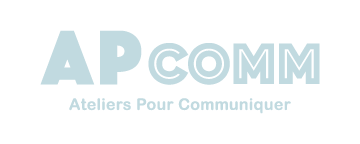Couple Therapy
When to consult for your couple?
Your couple is in crisis: dialogue is hard going, arguments increase; violence becomes intolerable; you are confronted with a unfaithfulness; your sexual life and intimacy are unsatisfactory; health problems affect your relationship; the arrival of a child destabilizes you; you feel the need to rethink your relationship.
Therapy as a couple allows you to:
Restore a sense of meaning to your couple or personal life; find a new balance; get out of conflict; defuse violence; communicate better; develop a better understanding of the other; address difficult sexual issues; re-invent your couple’s project; harmonize the relationship between your couple and your family of origin; be accompanied in a process of separation or bereavement.
Family Therapy
In which situations is family therapy indicated?
Your family is going through a crisis linked to a change: the arrival of a child, its adolescence, its emancipation; a separation, a family re-composition, a move; a family bereavement; the relations within your family become tense, or violent.
Your family is suffering because of problems encountered by one or more family members: school failure, unemployment, illness, accident, addictions, eating disorders, depression, dangerous behaviour.
Consulting with your family helps:
Give everyone their point of view, be heard and accepted; get out of hurtful relational cycles; find a new family balance; communicate better; be supported in a process of change, put family rules into place.
Individual Therapy
The individual accompaniment allows you to clarify your personal situation, to understand what is being experienced, and thus to find support and ways to transform the situation, to encourage evolution and change in your relationship with yourself, other people.
In a couple or a family, the spouse or a family member may not want to join the interviews. He/she can join you later if he/she wishes to do so.
What is Emotionally Focused Therapy (EFT)?
EFT is a well-known humanistic approach to psychotherapy formulated in the 1980’s and developed in tandem with the science of adult attachment, a profound developmental theory of personality and intimate relationships.
This science has expanded our understanding of individual dysfunction and health as well as the nature of love relationships and family bonds. Attachment views human beings as innately relational, social and wired for intimate bonding with others. The EFT model prioritizes emotion and emotional regulation as the key organizing agents in individual experience and key relationship interactions.
EFT for couples is the gold standard for empirically validated intervention in the field of couple therapy. According to research, EFT moves couples from distress to improvement in 10-12 sessions in about 70-75% of cases; typically it takes about 20-25 sessions to finish the EFT process. Research has shown that approximately 90% of couples who have completed Emotionally Focused Couple Therapy report long-lasting improvements years after therapy has ended. EFT is rapidly growing worldwide and has been used with many different types of couples in private practice, university training centers, pastoral counseling centers, and hospital clinics.
EFT has also generated many relationship education programs, such as Hold Me Tight: Conversations for Connection. (see page ateliers couple)
If EFT is best known as a cutting edge, tested and proven couple intervention, it is also used to address individual depression, anxiety and post traumatic stress (EFIT – Emotionally Focused Individual Therapy) and to repair family bonds (EFFT – Emotionally Focused Family Therapy). This model operationalizes the principles of attachment science using non-pathologizing experiential (paralleling Carl Rogers) and relational systems techniques (paralleling Salvador Minuchin) to focus on and change core organizing factors in both the self and key relationships.
If you think EFT could help you, please do not hesitate to contact me by phone or email in order for you to explain to me how I can support you.







